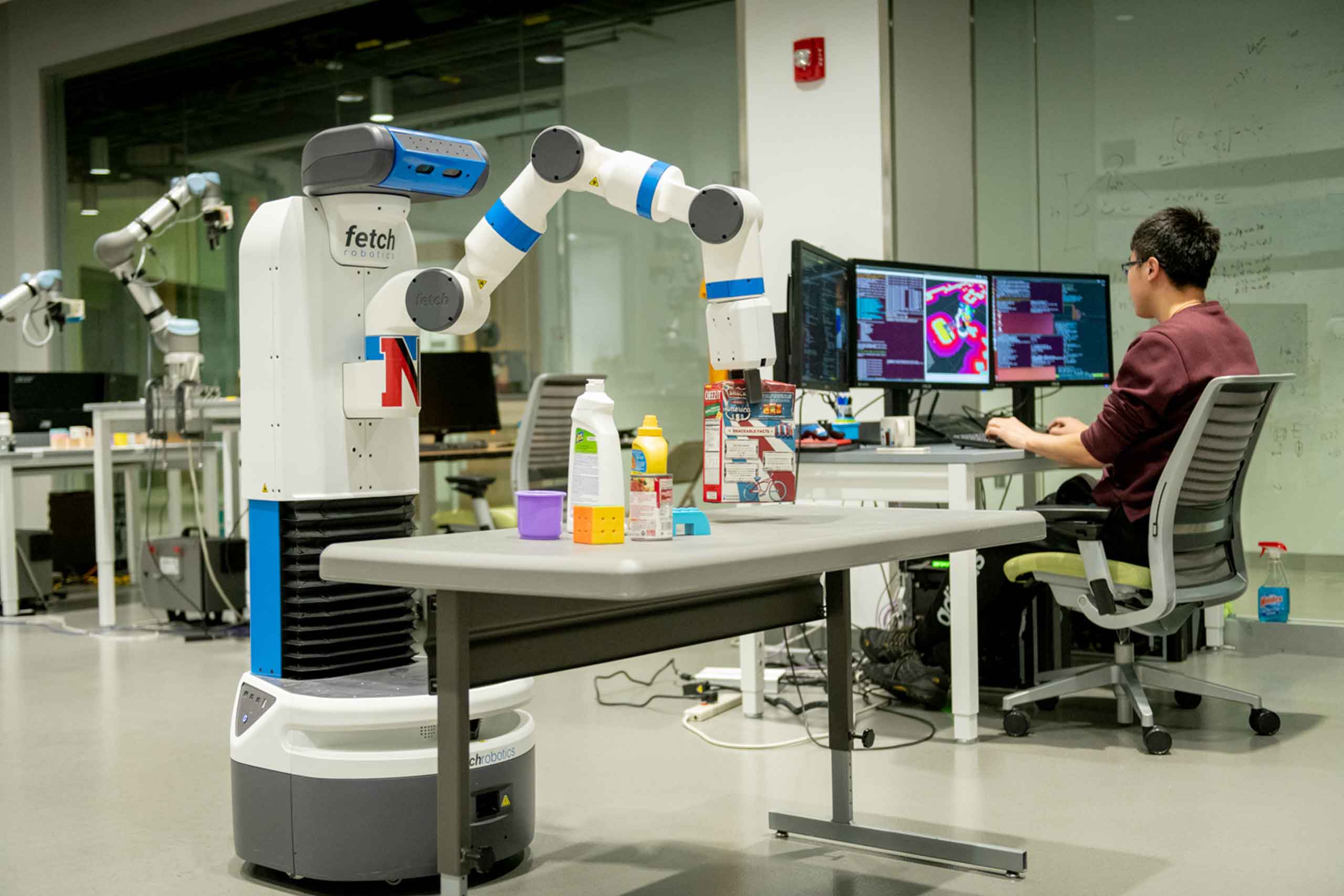

Multi-Functional Optical Meta-Systems Enabled by Deep-Learning-Aided Inverse Design

Sat 06.01.19

Multi-Functional Optical Meta-Systems Enabled by Deep-Learning-Aided Inverse Design
Sat 06.01.19



Sat 06.01.19

Sat 06.01.19



Sat 06.01.19

Sat 06.01.19
Artificial intelligence especially deep learning has enabled many breakthroughs in both academia and industry. This project aims to create a generative and versatile design approach based on novel deep learning techniques to realize integrated, multi-functional photonic systems, and provide proof-of-principle demonstrations in experiments. Compared with traditional approaches using extensive numerical simulations or inverse design algorithms, deep learning can uncover the highly complicated relationship between a photonic structure and its properties from the dataset, and hence substantially accelerate the design of novel photonic devices that simultaneously encode distinct functionalities in response to the designated wavelength, polarization, angle of incidence and other parameters. Such multi-functional photonic systems have important applications in many areas, including optical imaging, holographic display, biomedical sensing, and consumer photonics with high efficiency and fidelity, to benefit the public and the nation.
The integrated education plan will considerably enhance outreach activities and educate students in grades 7-12, empowered by the successful experience and partnership previously established by the PIs. Graduate and undergraduate students participating in the project will learn the latest developments in the multidisciplinary fields of photonics, deep learning and advanced manufacturing, and gain real-world knowledge by engaging industrial collaborators in tandem with Northeastern University’s renowned cooperative education program.
Metasurfaces, which are two-dimensional metamaterials consisting of a planar array of subwavelength designer structures, have created a new paradigm to tailor optical properties in a prescribed manner, promising superior integrability, flexibility, performance and reliability to advance photonics technologies. However, so far almost all metasurface designs rely on time-consuming numerical simulations or stochastic searching approaches that are limited in a small parameter space. To fully exploit the versatility of metasurfaces, it is highly desired to establish a general, functionality-driven methodology to efficiently design metasurfaces that encompass distinctly different optical properties and performances within a single system. The objective of the project is to create and demonstrate a high-efficiency, two-level design approach enabled by deep learning, in order to realize integrated, multi-functional meta-systems. Proper deep learning methods, such as Conditional Variational Auto-Encoder and Deep Bidirectional-Convolutional Network, will be investigated, innovatively reformulated and tailored to apply at the single-element level and the large-scale system level in combination with topology optimization and genetic algorithm. Such a generative design approach can directly and automatically identify the optimal structures and configurations out of the full parameter space. The designed multi-functional optical meta-systems will be fabricated and characterized to experimentally confirm their performances. The success of the project will produce transformative photonic architectures to manipulate light on demand.
Artificial intelligence especially deep learning has enabled many breakthroughs in both academia and industry. This project aims to create a generative and versatile design approach based on novel deep learning techniques to realize integrated, multi-functional photonic systems, and provide proof-of-principle demonstrations in experiments. Compared with traditional approaches using extensive numerical simulations or inverse design algorithms, deep learning can uncover the highly complicated relationship between a photonic structure and its properties from the dataset, and hence substantially accelerate the design of novel photonic devices that simultaneously encode distinct functionalities in response to the designated wavelength, polarization, angle of incidence and other parameters. Such multi-functional photonic systems have important applications in many areas, including optical imaging, holographic display, biomedical sensing, and consumer photonics with high efficiency and fidelity, to benefit the public and the nation.
The integrated education plan will considerably enhance outreach activities and educate students in grades 7-12, empowered by the successful experience and partnership previously established by the PIs. Graduate and undergraduate students participating in the project will learn the latest developments in the multidisciplinary fields of photonics, deep learning and advanced manufacturing, and gain real-world knowledge by engaging industrial collaborators in tandem with Northeastern University’s renowned cooperative education program.
Metasurfaces, which are two-dimensional metamaterials consisting of a planar array of subwavelength designer structures, have created a new paradigm to tailor optical properties in a prescribed manner, promising superior integrability, flexibility, performance and reliability to advance photonics technologies. However, so far almost all metasurface designs rely on time-consuming numerical simulations or stochastic searching approaches that are limited in a small parameter space. To fully exploit the versatility of metasurfaces, it is highly desired to establish a general, functionality-driven methodology to efficiently design metasurfaces that encompass distinctly different optical properties and performances within a single system. The objective of the project is to create and demonstrate a high-efficiency, two-level design approach enabled by deep learning, in order to realize integrated, multi-functional meta-systems. Proper deep learning methods, such as Conditional Variational Auto-Encoder and Deep Bidirectional-Convolutional Network, will be investigated, innovatively reformulated and tailored to apply at the single-element level and the large-scale system level in combination with topology optimization and genetic algorithm. Such a generative design approach can directly and automatically identify the optimal structures and configurations out of the full parameter space. The designed multi-functional optical meta-systems will be fabricated and characterized to experimentally confirm their performances. The success of the project will produce transformative photonic architectures to manipulate light on demand.











